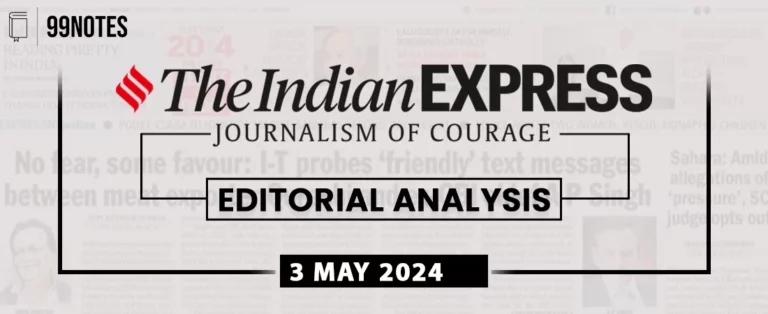19 July 2024 : Daily Answer Writing
Q1) The ordinance-making power of the executive is antithetical to the principles of accountability and democratic consensus. Examine with suitable illustrations.
(150 Words/10 Marks)
The ordinance-making powers (Article 123 and 213 of the Constitution) is the most important legislative power to be exercised by the President/Governor, in advice of the council of ministers, to deal with unforeseen and urgent matters.
Although, it is a part of the constitution it is criticized for diluting executives’ accountability as stated below:
1. Bypasses legislature: Successive promulgation of ordinances, bypass the law-making function of the legislature.
E.g., During 1970s more than 200 ordinances were promulgated by the Bihar government, without any attempt to get the bills passed by the assembly.
2. Avoids detailed scrutiny: Ordinances are often allowed to lapse and are not tabled before the Parliament. This undermines the constitutional provisions for Parliamentary scrutiny over the executive.
3. Overrides judicial oversight: Use of ordinance making power is also done to circumscribe judicial scrutiny.
E.g., recent use of ordinance by the Union government to reverse the SC’s order and reinstate the control of services with the unelected Lieutenant Governor and not with the elected government.
4. Exploited for political gains: Ordinance making power is used for political exigencies to garner electoral benefits. It defeats the intent of this constitutional provisions and gives executive a free hand to impose its agenda irrespective of parliamentary will.
5. Ordinances to extend the tenure of high-ranking officials days before their retirement diminishes their autonomy.
E.g., Extension of tenure for ED and CBI directors through ordinances.
It also impacts on national consensus on important manner in the following ways:
1. Dilutes democracy: Legislature comprises of peoples’ representatives entrusted with framing law. Ordinance denies legislature from there democratic right.
E.g., ordinance for land and farm law.
2. Sporadic policies: As ordinance are temporary and not debated upon, they give credence to whims and fancy of handful of individuals. This makes such policies highly volatile and subject to change.
3. Majoritarian regime: Ordinances promulgated by the executives’ runs the inherent risk of ignoring the minority (opposition) views which are equally important/relevant in a democracy.
4. Ineffective legislation: Generally, ordinance are narrowly discussed within Council of Ministers and may lack broad perspective; thus, prone to inefficiency.
5. Conflict between government organs: It violates Separation of Power and creating friction between executive and legislature. It also opens scope for judicial intervention.
Ordinance making power is very important power of executive to handle some extraordinary situation, but it is not a parallel legislative power. It is imperative upon the executives to sparingly use the ordinance making power and table it before the legislature.




